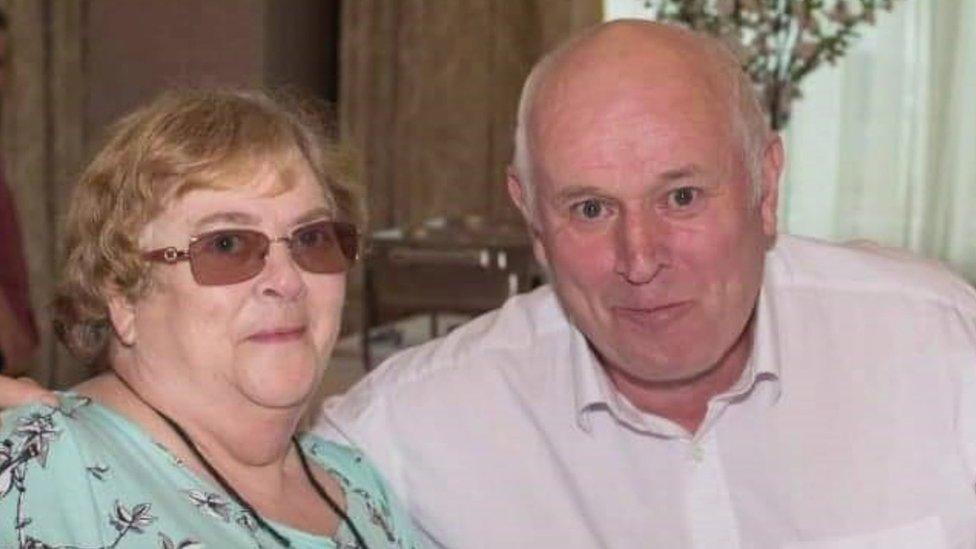Coronavirus: Robin Swann to bring new proposals to NI Executive
- Published
Robin Swann hopes for 'better Christmas season'
Health Minister Robin Swann says he will bring proposals to Thursday's executive meeting setting out options to manage the spread of Covid-19 in NI.
Ministers are due to meet for the first time since last week's row over extending some restrictions.
Mr Swann said his paper would set out measures to "get us through the difficult weeks ahead".
He will suggest further restrictions and initiatives, in the hopes of reaching consensus, he added.
Earlier, First Minister Arlene Foster said it was "time for the executive to step back" and collaborate together.
Her party, the DUP, faced criticism for using a cross-community mechanism to block two proposals last week from Mr Swann to extend the restrictions - and the party has not ruled out deploying it again.
Speaking at a press conference at Stormont on Wednesday, Mr Swann said the "single biggest priority" had to be forcing down rates of infection in Northern Ireland.
"Those of us in political leadership have a critical responsibility to take the right decisions - it's tough because all of us around the executive table are taking the decisions," he said.
"I will be bringing a paper to tomorrow's executive...detailing a range of options and initiatives to get us through the difficult weeks ahead.
"It can help us achieve a better Christmas season as we look forward to a much better new year."
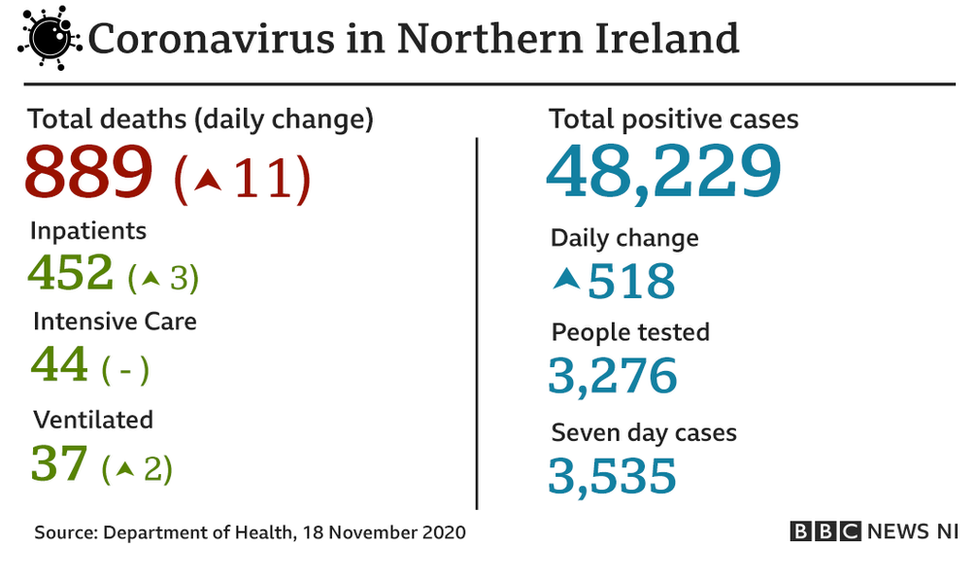
He said he would not hesitate to recommend more restrictions if required and said there were "no quick fixes".
NI's Chief Scientific Adviser Prof Ian Young said NI's R number - or reproduction value of the virus - was sitting "around one" - a rise from two weeks ago when it was sitting at about 0.7 for new case numbers.
"There are no new solutions - we all need to limit our mobility and the number of contacts we have with other people and to adhere to other mitigations we've been talking about for so long," said Prof Young.
Their comments came as another 11 people died in Northern Ireland after contracting Covid-19.
In the past day, 518 more people tested positive for the virus.
In the Republic of Ireland, a further 12 people died after contracting Covid-19, and 379 new cases were also confirmed.
On Wednesday, the health minister visited Whiteabbey Hospital's Nightingale facility, which he said would open on Friday.

Analysis by Louise Cullen, BBC News NI health reporter
This was the minister and his advisers setting out their stall ahead of tomorrow's Executive meeting.
The words of the Chief Scientific Adviser - "we have not yet seen the fall we had hoped for" - were telling.
Hospital inpatients are still at a high level, and the rate of transmission, the R number, didn't drop as much as expected while schools were closed. It's risen since they returned.
The trio were asked about mass testing and rapid testing. But that's the tip of a very large iceberg of logistics, reliability and availability.
At least 90% of the population would need to be repeatedly tested to allow mass rapid testing to be effective, and the rapid test currently has a 30% failure rate.
Dr. Michael McBride spoke of hope being tempered with realism - while spring and summer may present a brighter picture, thanks to developments in testing, vaccination and treatments for the virus, the realistic picture now for the health minister is that more restrictions will be needed before Christmas.
The department of health said it will provide enhanced rehabilitation "step down" care for Covid patients who are well enough to leave an acute hospital but who would benefit from a period of rehabilitation before discharge.
The nightingale will be run by the Northern Health and Social Care Trust and will provide an additional 23 beds with further expansion expected.

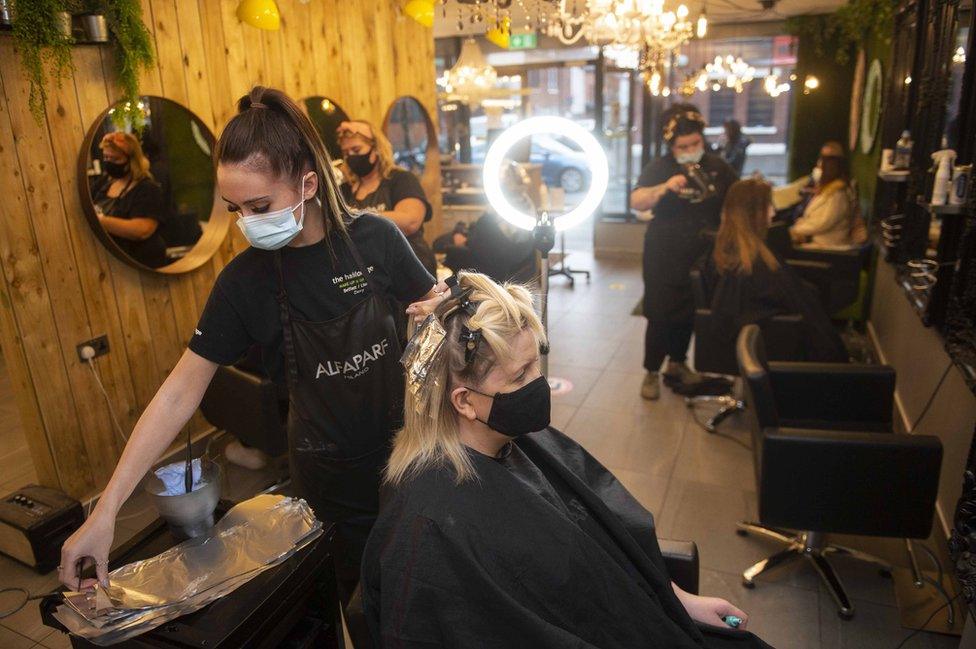
Hairdressing salons are among the businesses that can reopen from Friday
'Last week not good for Stormont'
Earlier, Mrs Foster said initial discussions had taken place on Tuesday with other executive ministers about trying to reach an earlier decision around current Covid-19 restrictions.
Close-contact services, cafes and coffee shops can reopen this Friday but restrictions on pubs, restaurants and hotels are due to expire at midnight next Thursday.
"We're all adults - we recognise last week was not good for the executive," she told BBC News NI.
"I hope we will have a press conference tomorrow… it is our desire to communicate with the public as much as we can.
"It's about preparing the ground this week - we cannot leave it to the way it happened last week, we have to step forward this week."
She repeated her assertion that she wants to find a "balanced and proportionate approach" to the restrictions.
Mrs Foster added she would need to see the detail from the health minister and assess it with other data before making a decision.
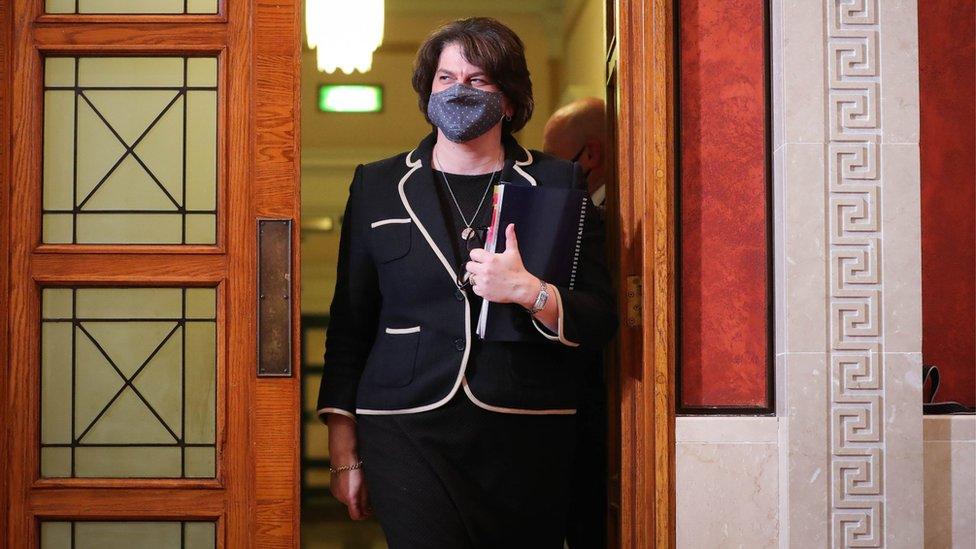
Arlene Foster says she wants the executive to step back and try to avoid a repeat of last week's row
"I would love to give certainty to everybody in Northern Ireland but I have to hear what the health minister has to say in relation to all of that," said the first minister.
"People need to know what is happening and whatever the decision is I think it is incumbent upon us to communicate that as quickly as we can."
'Mass testing an exciting prospect'
NI's Chief Medical Officer Dr Michael McBride told the press conference that officials were looking at the possibility of mass testing for university students, to allow them to come home for Christmas.
However, he warned it was not a "panacea" for people to ignore other public health guidelines.
Mr Swann added that he had written to the British Health Secretary Matt Hancock about rolling out a mass testing programme in Northern Ireland, but he cautioned that discussions were ongoing, would prove resource-intensive and would not be a full solution.
Prof Young said the prospect of wider testing was "exciting", but that it had limitations.
He said where it had been successful, a high number of the population - about 90% or more - needed to be tested, which would present "enormous logistical challenges" in Northern Ireland.
He added that it would also require repeated testing due to the infectious cycle of the virus, meaning developing the programme itself would be challenging.
Earlier on Wednesday, Prime Minister Boris Johnson said Downing Street would talk to the Stormont Executive about the government's plans to roll out more mass testing programmes across the UK.
He made the remark in response to DUP MP Sir Jeffrey Donaldson during prime minister's questions.
Sir Jeffrey said Northern Ireland should be considered for the scheme, which is already operating in Liverpool, due to its population size.
The prime minister said he recognised mass testing was a "powerful weapon" in the fight against Covid-19 and that talks with the executive would take place.
Deputy First Minister Michelle O'Neill said she had spoken to the Mayor of Liverpool Joe Anderson about the benefits of mass testing.
Allow X content?
This article contains content provided by X. We ask for your permission before anything is loaded, as they may be using cookies and other technologies. You may want to read X’s cookie policy, external and privacy policy, external before accepting. To view this content choose ‘accept and continue’.
- Published14 October 2020
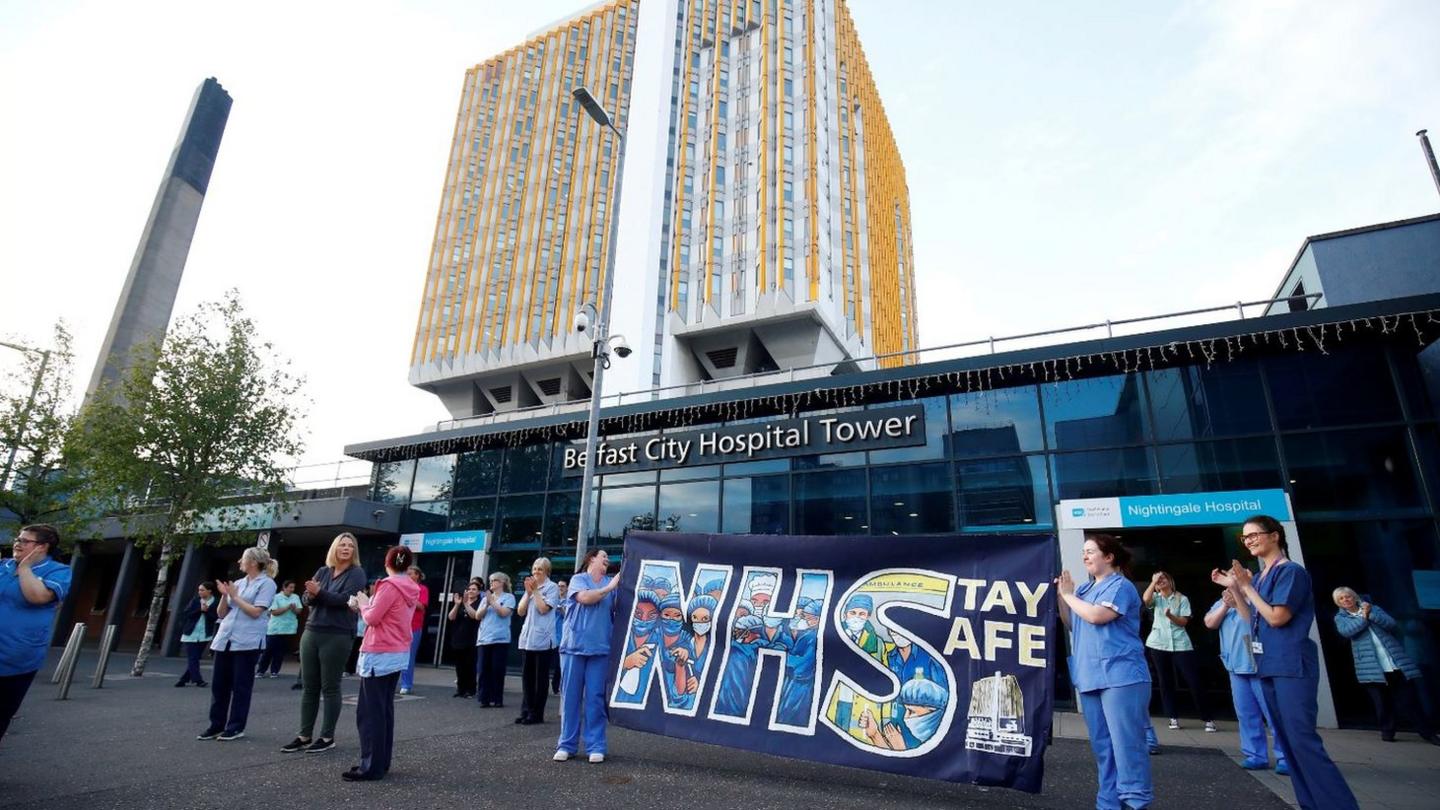
- Published18 November 2020
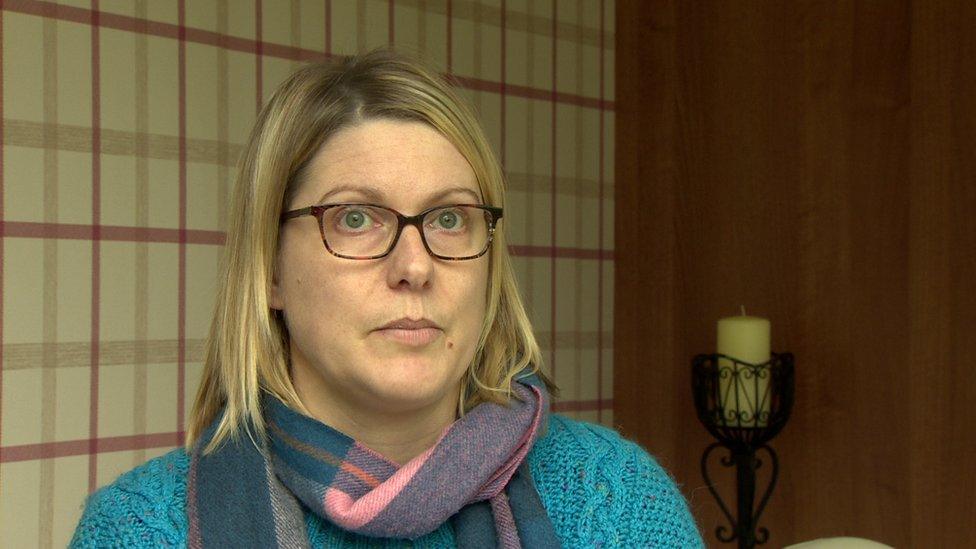
- Published17 November 2020
